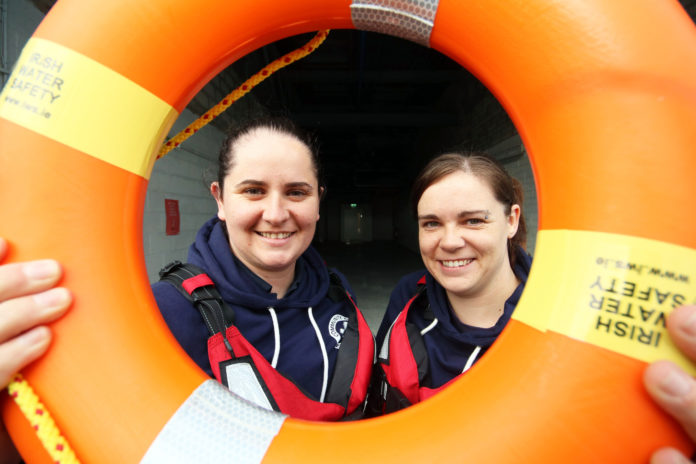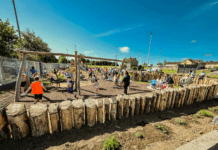
CAITRIONA McMahon and Kayla Cooley met on a night out in Limerick eight years ago.
Four years later, the two friends were up all night for a very different reason.
Caitriona had confided in Kayla that she wanted to take her own life.
The eventual outcome led to the formation of the Community Crisis Response Team (CCRT) in February 2016.
“We set up CCRT for two reasons. Caitriona didn’t want anyone to feel suicidal and feel alone. I didn’t want anyone who came on someone suicidal to feel alone and afraid,” Kayla said.
The volunteer team operate a crisis line from 5pm to 6am 365 days a year, responding to calls from people who have spotted someone in distress or suicidal, and people who themselves are in distress or suicidal.
The team has had more than 300 crisis interventions in their two years of operation, saving lives and offering a lifeline to those in distress.
Kayla said she wished a service like that had been available to her when Caitriona told her she was suicidal, but she didn’t know who to call.
Caitriona had been going to counselling, but there were things she was nervous to tell a counsellor. She needed a friend, a safe space.
“For me it was the fact that Kayla is very upfront and honest. She’s very real. I knew from previous conversations, we’d openly talk about everything, and there was no judgement there. That’s why I felt she was a safe person,” Caitriona explained.
Caitriona was also suffering from OCD and it had intensified to the point where she had rituals she had to follow. She had to double and triple check things she was doing every day. Even the simple task of sending an email had to be checked about ten times.
She had also experienced a severe change in her mood and was self-harming.
This started as a way to “cope” with life, Caitriona explained, “but then it got to the point where that wasn’t enough anymore.”
“I knew about the self-harm from a self-harm standpoint,” Kayla said, “but not from an ‘I want to end my life’ standpoint.”
Kayla said the biggest thing she noticed with her friend is something she advises people to look out for: “Caitriona is one of those friends who will cry at anything. Happy movie, sad movie, happy ad, sad ad, it doesn’t matter, she just cries.
“But there came a point where she wasn’t crying talking about her depression, she wasn’t angry anymore, nothing. She was just completely blank. That’s when I knew.”
“It was eerie. Scary. And I knew it was bigger than what she’d been saying.”
On the night Kayla confronted her, Caitriona had decided things would not get better and made a comment like “it doesn’t matter anymore anyways”.
“I asked her straight out if she was talking about suicide, or was she thinking about suicide.”
“A huge argument followed. She got so defensive. The barriers just went up.”
“I didn’t know how I was going to do it but I just kept annoying her for an answer until I was happy I knew she was being honest. And eventually, fair play to her, she was honest and she said it all out.”
“It was the hardest sentence I have ever had to say out loud, but it was the one that changed my life,” Caitriona said.
“It was that kind of approach where I knew she wasn’t going to let it go, so I was going to have to be honest with her.”
“Initially, I called her every name under the sun. At this stage I had made a plan, I was ending my life, and she was ruining that plan.”
“I was just relieved to see anger again,” Kayla said, “to see anything, instead of blankness.”
“I get defensive with people but only if it’s something that’s actually true.”
So what comes next after someone tells you they’re suicidal?
Kayla said she knew Caitriona had a fear of hospitals so bringing her to a hospital wasn’t an option.
“All I could think of doing was staying with her for the whole entire night. I had in my head that in the morning when things are open again I will ring her counsellor and tell her everything.”
“But during the night I was so scared. I didn’t know like. Was she going to try and do it now? Would she try next week? I didn’t know what was going on. So we just stayed up and talked for the most of the night.”
Caitriona said the following morning when Kayla called her counsellor she got really angry again as she felt betrayed.
A few years later, the two friends were at an ASIST (Applied Suicide Intervention Skills Training) training course run by the HSE.
“That night I would have loved for someone who was ASIST (Applied Suicide Intervention Skills Training) trained to come up to the house,” Kayla said, “but where are these people? How do you contact them? How do I know where they are?”
“So we thought, right, we are ASIST trained and if nobody else wants to put themselves forward then we will.”
And from that thought, CRRT was born.
Members of the team are trained in advanced suicide intervention skills, child protection policies, water safety and first aid.
They travel to wherever people may be in distress, and with the addition of their new home in Rathkeale, they now have a hub where people can come to them.
They also offer QPR (Question Persuade Refer) Suicide Prevention Certification training to members of the public.
A two and a half hour course, it identifies the signs to look out for and steps to take when someone is in crisis.
Kayla says there were signs that Caitriona was suicidal but without the training, she didn’t recognise them at the time.
“The more people that are trained in QPR, the more they can recognise the signs and reach out to us for help when they’re with someone in distress”.
Kayla’s advice to those in a situation like she was is to “fake it till you make it.”
“You might be absolutely petrified, but you have to ask the question straight to their face. It won’t work any other way – even if you’re scared.”
The answer may be no, or it may be yes, but the two women agree either answer is better than not knowing.
“Sometimes people ring when they’re afraid someone is suicidal. You can ring the crisis team and they’ll prepare you for that conversation.”
“We can advise you on how to approach the situation. We can stay on the phone while the whole process happens.”
Caitriona said they will be encouraging members of the public to undertake the training course.
“It’s like First Aid training for mental health. We all get First Aid training.”
For now, people can email [email protected] to express interest in being QPR trained. Caitriona and Kayla hope to provide training to groups, organisations and businesses. They also plan to offer training at their new hub in Rathkeale.
The ‘suicide prevention hub’ will provide a base for team members, as well as a safe space for those in distress.
Those interested in becoming a member of the Community Crisis Response Team can apply through their website.
They’re looking for people who are “non-judgemental and good listeners” who can volunteer for at least one shift per week (5pm – 6am).
Current volunteers come from a range of backgrounds including medical professionals. Volunteers don’t have to have any training prior to signing up as all training is provided by the group.
They’re looking for people to help out with administration and fundraising.









